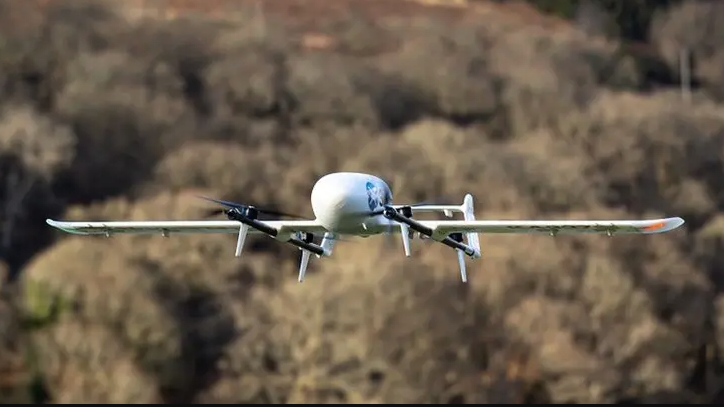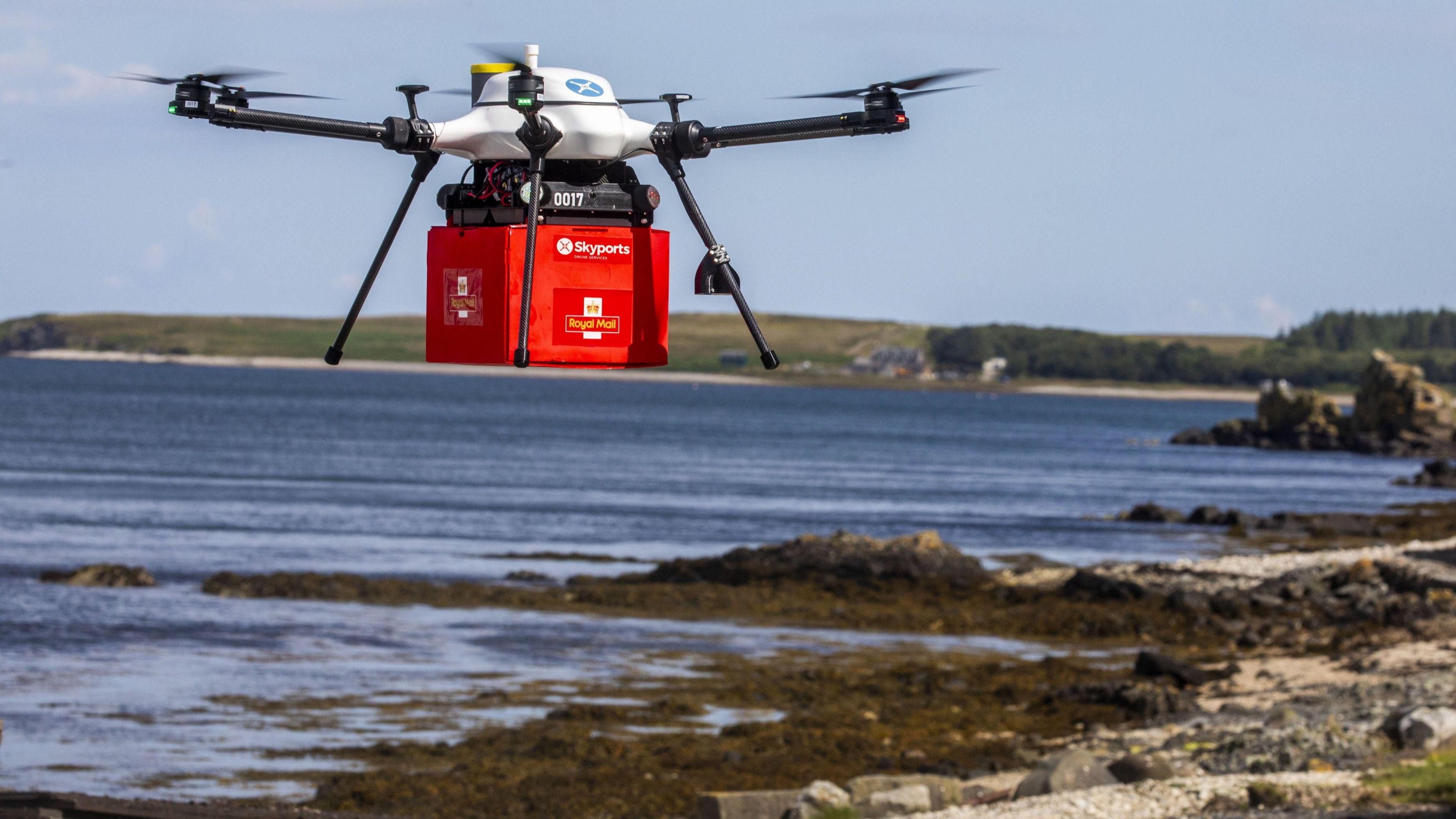Drones could fly medicines and mail in Argyll and Bute

Drones have previously been trialled in Argyll and Bute and other parts of Scotland
- Published
Medical supplies and mail could be transported by drones to try and cut delivery times in rural parts of Argyll and Bute.
More than £500,000 of investment has been announced by the UK government's department of science, innovation and technology (DSIT) to further explore the possibilities of using drones in the area.
It is part of an £8.9m technology investment programme across the UK, and will involve a partnership between the drone company Skyports and Argyll and Bute Council.
Details about the project are at an early stage, but if approved it would mean the drones flying for longer distances than is currently permitted.
The DSIT hopes the funding will help cut the delivery time of medicines and items of mail from "hours to minutes".
Drones fly NHS lab specimens in Scottish first
- Published21 August 2024
Drone mail service suspended after device sinks
- Published30 November 2023
Flying a drone 'beyond the visual line of sight' of the person piloting it is a key consideration in the development of drone technologies in the UK and beyond.
If companies can routinely fly drones safely while the pilot is potentially hundreds of miles away, the technology could become an integral part of the infrastructure of rural communities in Scotland.
Earlier this week, the UK's Civil Aviation Authority published a report, external which outlined an ambition for drones to be routinely flown in the UK beyond a pilot's direct line of sight by 2027.
The DSIT money will be used to explore this concept in Argyll and Bute.
Alex Brown, the chief executive of Skyports Drone Services, told BBC News that flying beyond the visual line of sight would have a "transformative impact" on what could be done with drones in the UK.
He added: "It means we can fly much further, unlocking use cases such as urgent long range medical deliveries.
"It also means that pilots can operate fully remotely - so a pilot could be flying a drone in Scotland, but operating it from London.
"This is significant as it allows multiple missions to be flown in one day across different locations, really allowing drone operations to scale significantly in the UK."
The funding is from the UK government's Regulators' Pioneer Fund, which aims to cut red tape and encourage innovation across the UK.
It is not related to wider health budgets, which are devolved to the Scottish Parliament.
Argyll and Bute is Scotland's second largest local authority with 23 inhabited islands.
Council leader Jim Lynch said: "Our previous trials with partners have shown the real potential of drones to improve services in rural and island communities - reducing costs, cutting emissions, and speeding up delivery of essential items.
"Until now, these trials were limited by regulatory constraints, but new guidance from the Civil Aviation Authority opens the door to exploring safe, low-risk applications."
Have drones delivered mail before?

The drone service delivering mail in Orkney will now continue until 2026.
The use of drones to fly medical equipment and post in Scotland is not new, with Skyports involved in several trial projects in Argyll and Bute over the past few years.
In February, 2021, the company flew Covid-19 samples and test kits. The following year, the delivery of fresh school meals using drones was trialled.
There are also plans to develop Oban Airport, external to make it a specialist drone training and research centre.
In October 2021, drones from the company Windracers started to deliver mail to North Ronaldsay, a remote Orkney island.
Meanwhile, the UK's first commercial drone mail service between Stromness, in the Orkney mainland, and the islands of Graemsay and Hoy has been extended to 2026.
As part of DSIT's announcement, £107,033 will also be invested with the North Sea Transition Authority for the development of artificial intelligence (AI) to help with data accessibility.
Science and Technology Secretary Liz Kendall said: "Every day across the country new products are being invented that have the potential to transform lives and revolutionise public services.
"But all too often, we are held back from taking advantage of them by red tape that simply hasn't kept pace with the scientific and technological advances."